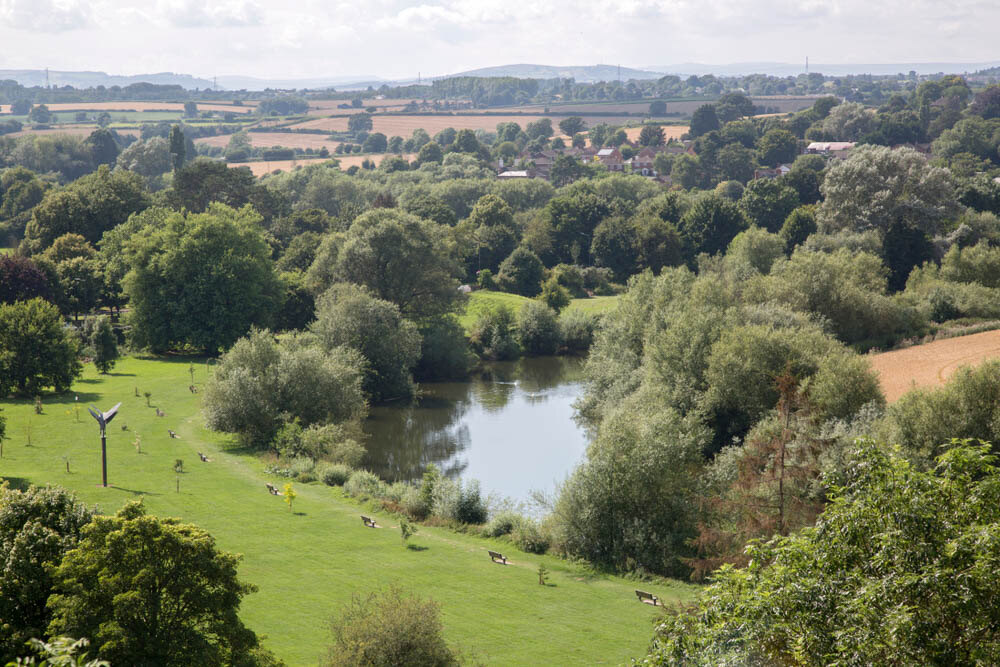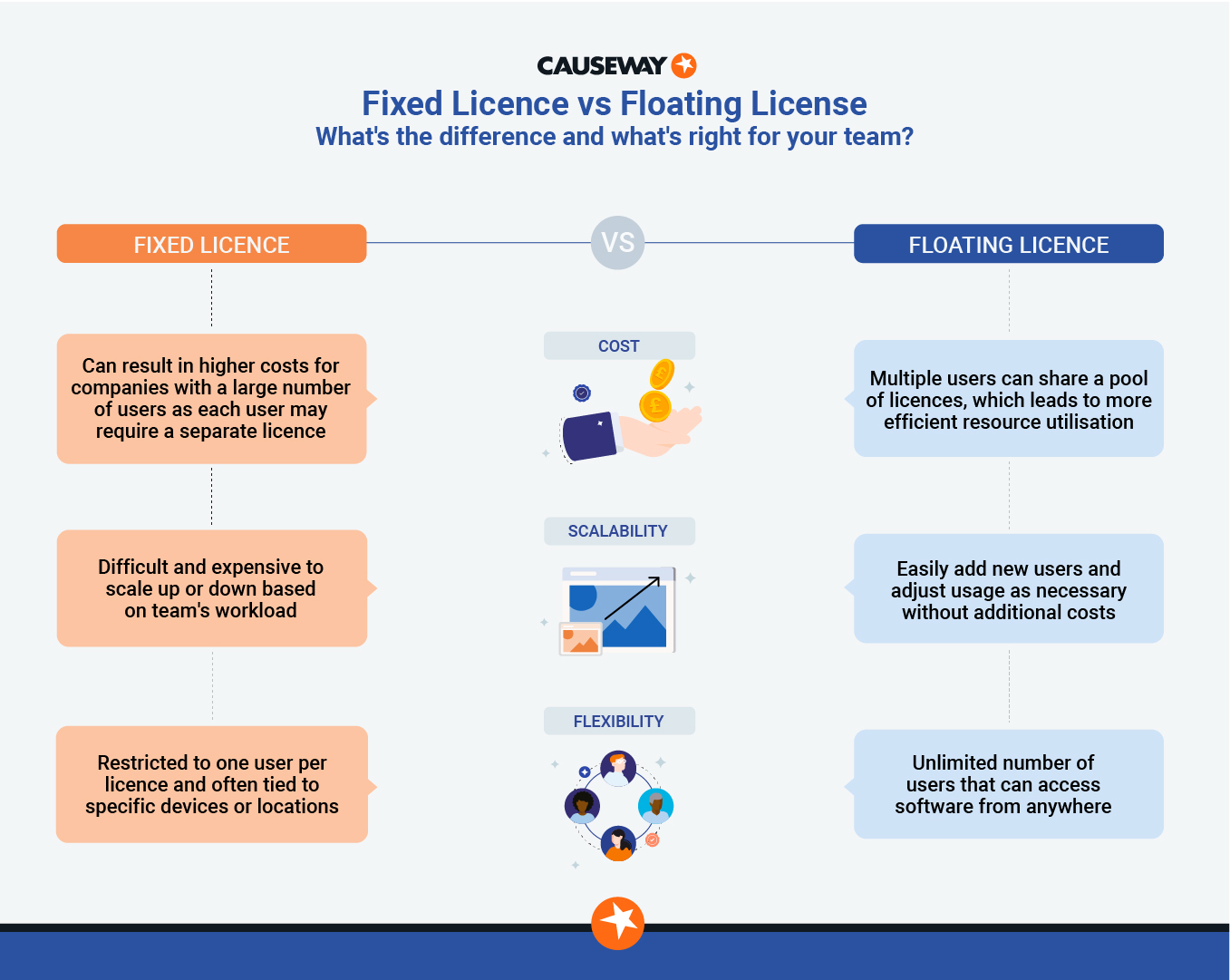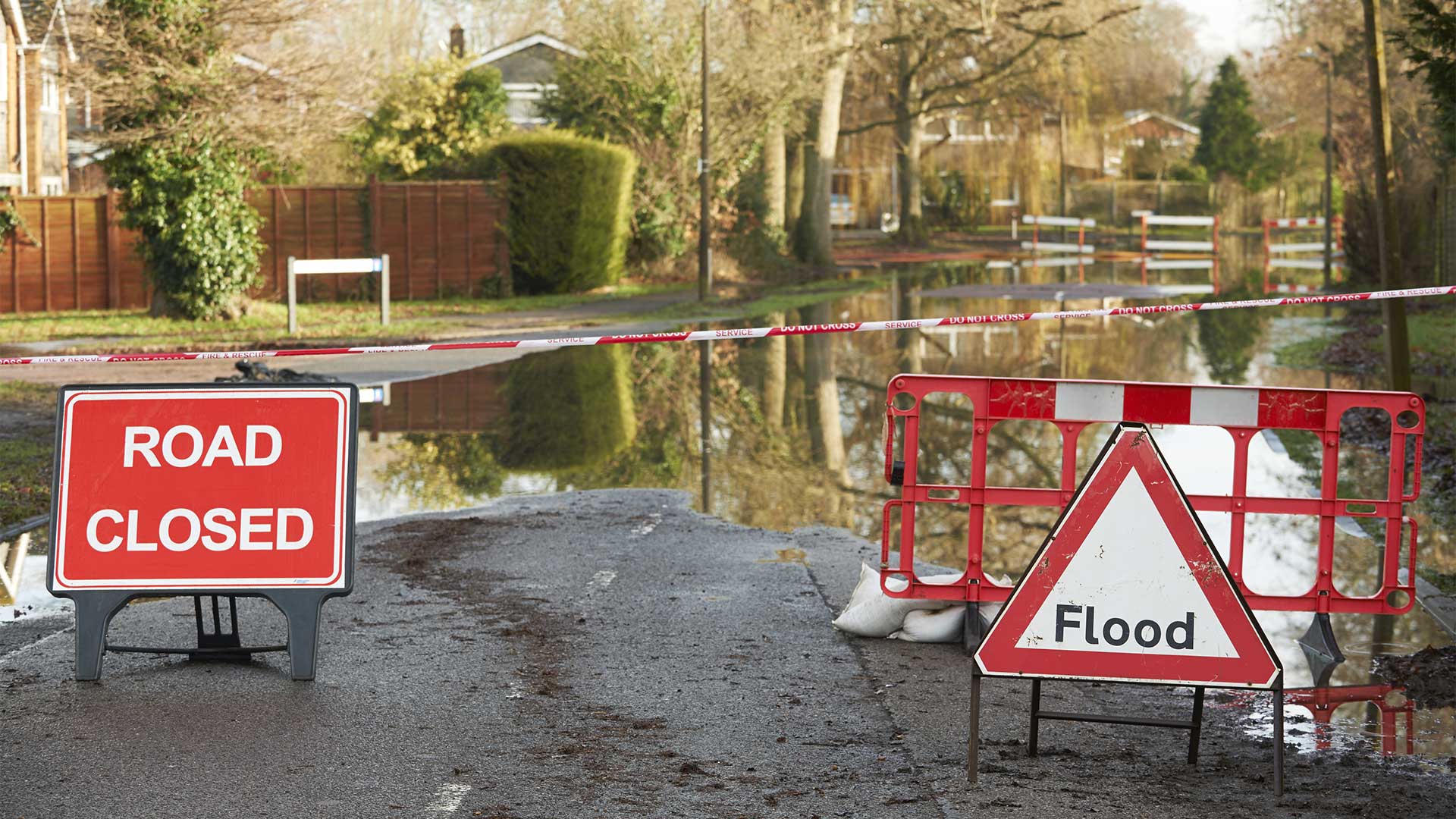In January, the Department for Food, the Environment and Rural Affairs (DEFRA) announced that it intends to make sustainable drainage systems (SuDS) mandatory on most new developments in England in 2024. Here we look at what this means for businesses and hear from two consultancies that have experience in Wales where these standards are already in place.
Currently, SuDS is only required on developments of more than ten homes in England. The change in policy will be facilitated by the implementation of Schedule 3 of the Flood and Water Management Act 2010. This will require all developments of more than one home or with an area of more than 100 square metres to include SuDS. This move will bring England in line with the approach in Wales where SuDS has been mandatory since 2019. The next step will be for DEFRA to launch a consultation on the details of implementation and the potential impact on developers.
What are SuDs?
Where rain falls on impermeable surfaces created by urban development and greenfield construction it quickly runs off to sewers, in effect concentrating the rainwater and leading to flooding. The number of households in England is projected to increase by 1.6 million over the next 10 years and overall, the UK population is projected to pass 70 million people by 2037. This means many more new homes will be built, alongside the schools, hospitals and other amenities needed to support them. Without a considered approach to drainage there will be a significantly increased risk of flooding.
The use of Sustainable Drainage Systems is intended to control both flood and pollution risks from urban run-off by managing rainwater as close to where it falls as possible, replicate natural drainage and encourage infiltration, attenuation and passive treatment. SuDS should also provide natural habitats, improve biodiversity and create recreational areas.
A win for the environment
The change certainly has the potential to have a positive impact for the environment, as well as for those living in the developments included in these new standards. Richard Harman, Partner and Head of Engineering at Berrys, a property consultancy with clients in England and Wales said:
“This is a positive move forwards by DEFRA and if we are serious about making SuDS work in England, Schedule 3 is the antidote to some of the current problems we face in the industry. The schemes we have delivered in Wales have provided clear environmental benefits through enhanced water quality, habitat provision and amenity value, when compared with more traditional ‘SuDS-lite’ designs previously relied upon.”
Andy Johnson, Associate at PJA agrees. He said:
“I think it’s a huge step forward in making SuDS, and multiple benefit SUDS in particular, mainstream and accepted by stakeholders.”
What does this mean for consultancies?
This update to the Flood and Water Management Act 2010 will undoubtedly mean a change in approach for businesses operating in England when integrating drainage into new developments. We asked Richard and Andy for their reactions to the announcement and what they see as the challenges and opportunities ahead.
Richard explains what he thinks the main issues will be:
“There will be challenges for the industry as a whole in England, and if the statutory standards end up being similar to those in Wales, this requires a more holistic approach to designing site layouts and planning for SuDS.
“Another key challenge will be managing shifting overarching policy requirements for open space and amenity land, biodiversity net gain, and SuDS. However, when good quality SuDS are designed, there should be no reason why all three boxes cannot be ticked within one space provision within the site.”
Andy further highlighted the challenges of implementation:
“I think the 2024 target is ambitious given the complexities of the English system, but the DEFRA report reads as though they have carefully considered what will happen, what has happened in Wales and what the best approach is to ensure this Schedule is enacted well with few problems.”
Furthermore, there is some concern among businesses that the need to seek approval from the SuDS Approval Body (SAB) will add additional requirements and complexity for developers. However, this is not the view of Richard or Andy.
Richard explained: “Whilst I’ve no doubt that some will view SAB approval as another layer of burdensome bureaucracy, the current system is not working to its potential and we have been advocating Schedule 3 for England to our clients for some time now.”
Andy also believes this change will not be as challenging in practice as some have assumed: “Our understanding is that if England is to follow the same process as Wales and implement the SAB separately from the planning process, then there will be a shift from drainage related planning conditions to SAB approval. So, the burden on the applicant would not increase, just move to a different approving body.”
While SuDS has not been mandatory on all developments in England, a growing number of developers and other stakeholders have looked to implement this approach as sustainable best practice. Andy explains:
“We always work with the developer to introduce multiple benefit SuDS from the outset and guide the masterplan to maximise the blue/green infrastructure as much as is practical to do so. This is why we welcome Schedule 3 as it gives some legal base to this approach.”
Ultimately, there is a strong argument that this will be a positive change, not only environmentally but also for developers and consultancies. Richard outlines the experience of Berrys:
“As a consultancy team based on the English and Wales border, it has been interesting to compare the differences in the delivery and quality of SuDS across the regions. The feeling in the team is clear: The Wales model provides far more clarity in the approach required to plan and design SuDS for developments and this ultimately results in better schemes, which delivery greater environmental benefits.”
How Causeway can help
At Causeway, we have always advocated for high-quality, sustainable designs, especially with regard to drainage, and have developed the tools that customers require to achieve this. Sustainability is a core value at Causeway, so we welcome the Government’s announcement and are on hand to provide the support needed to prepare for the transition in 2024.
Our Live Design software is the first 'live' civil engineering design platform that brings all infrastructure disciplines into one design environment. This includes fully integrated design tools with SuDS functionality – Causeway Flow and Causeway Overland Flow.
Causeway Flow is a powerful end-to-end hydraulic modelling solution for analysis and design of compliant and cost-effective storm and foul water drainage networks, enabling streamlined and adaptable designs. Causeway Overland Flow allows efficient analysis of a site to show surface water flow and provide a detailed evaluation of flood levels. It provides clear information in visual and graphical form to help identify problem areas and inform the design of drainage solutions.
Dr. Netsanet Mebrate, Subject Matter Expert on Flow and all thing drainage design, said: “The announcement that a requirement for SuDS will be extended to more developments in England is an important development for protecting both our natural and urban environments.”
“Live Design and Causeway Flow are powerful tools for consultancies in developing SuDS compliant drainage designs. Our team is on hand to help customers navigate the new requirements.”
Ready to future-proof your business? Book a discovery call today.


